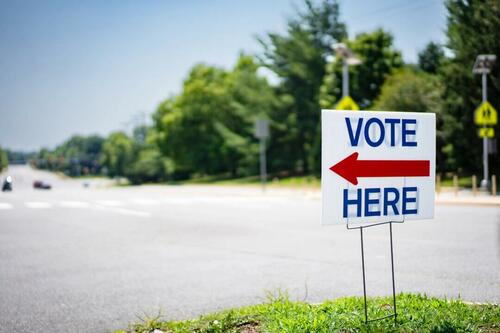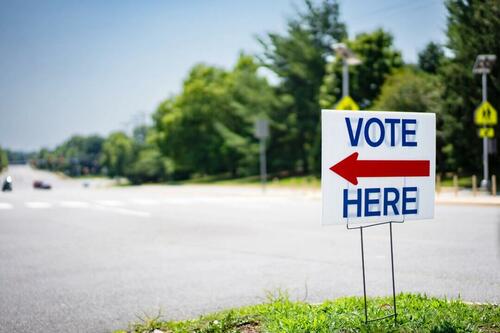Minnesota Supreme Court Rejects Challenge To Voting Rights For Felons On Probation
Authored by Katabella Roberts via The Epoch Times (emphasis ours),
The Minnesota Supreme Court unanimously upheld a 2023 state law returning voting rights to Minnesotans with felony convictions immediately after their release from prison.

In its Aug. 7 ruling, the state’s highest court did not comment on the merits of the law but rejected a challenge from the nonpartisan organization Minnesota Voters Alliance (MVA), alongside four citizen plaintiffs.
The court agreed with a previous lower court decision that found the group and individuals lacked legal standing to challenge the measure and had failed to prove that the Legislature overstepped its authority when it voted to extend voting rights to individuals who are out of jail but still on probation for a felony.
The legislation, House File 28 or the “Restore the Vote” bill, was signed into law by Minnesota Gov. Tim Walz—whom Vice President Kamala Harris announced this week as her running mate—in March last year.
It returned the right to vote for convicted felons who have completed their term of incarceration, including those who remain on parole or probation, and required the Department of Corrections or judiciary system officials to inform the convicted felons in writing that they were able to vote upon their release.
The measure maintained that incarcerated individuals would not be able to vote.
At the time Walz signed the bill into law, he said it would likely apply to more than 55,000 convicted felons in the state who have completed their prison terms, thus allowing them to vote immediately.
The measure marked the largest expansion of voting rights in Minnesota in a half-century, as previously convicted felons had to wait until the completion of their probation period to be able to vote again.
While the bill was set to go into effect on July 1, 2023, it was quickly challenged by the MVA, who argued in a lawsuit filed in Anoka County District Court that the law violates the state Constitution.
The group pointed to Article VII, Section 1 of the Minnesota Constitution, which requires that a felon may be “entitled or permitted to vote at any election in this state” only after they have been “restored to civil rights.”
They argued the law was unconstitutional because it returns a felon’s right to vote before their civil rights are returned, or before the felon has been “relieved of all limitations and burdens, such as parole and restitution, placed on them by the court-imposed sentence.”
‘Constitutional Questions Unanswered’
However, lower court Anoka County Judge Thomas Lehmann overruled the MVA’s challenge, citing a lack of standing by the taxpayer as a valid standing “requires a challenge to an illegal expenditure or waste of tax money.”
The lower court determined that the taxpayers “failed to satisfy this requirement” because they “did not challenge a specific disbursement of public funds” but instead, used the Legislature’s appropriations as a “mere jumping-off point” to “challenge something that has nothing to do with money: namely, the eligibility of some citizens to vote.”
MVA then appealed to Minnesota’s Supreme Court, which agreed with the lower court and concluded that the taxpayers lacked standing.
“We instead hold that when standing would not otherwise exist to challenge a substantive law, a taxpayer cannot manufacture standing by pointing to expenditures that are incidental to implementing the law,” the court wrote.
The ruling from the state’s Supreme Court comes as early voting for next week’s primary election is already underway. Early voting for the Nov. 5 general election will start on Sept. 20.
In a response to the Minnesota Supreme Court’s ruling, the MVA said it was “disappointed that this decision makes it more difficult for Minnesotans to hold their government accountable and leaves the important constitutional questions in this case unanswered.”
“We are deeply frustrated that the Minnesota Supreme Court chose to limit our clients’ rights as taxpayers to challenge their government’s unlawful actions in the courts,” said Doug Seaton, president of UMLC, the organization that challenged the law on behalf of the MVA. “This decision sidesteps the necessary constitutional scrutiny and leaves Minnesotans without a clear resolution on the legality of significant changes to our voting laws.”
The MVA vowed to “continue to seek resolution to government or legislative actions that negatively impact Minnesota’s election system.”
Chase Smith and The Associated Press contributed to this report.
Tyler Durden
Fri, 08/09/2024 – 12:00


